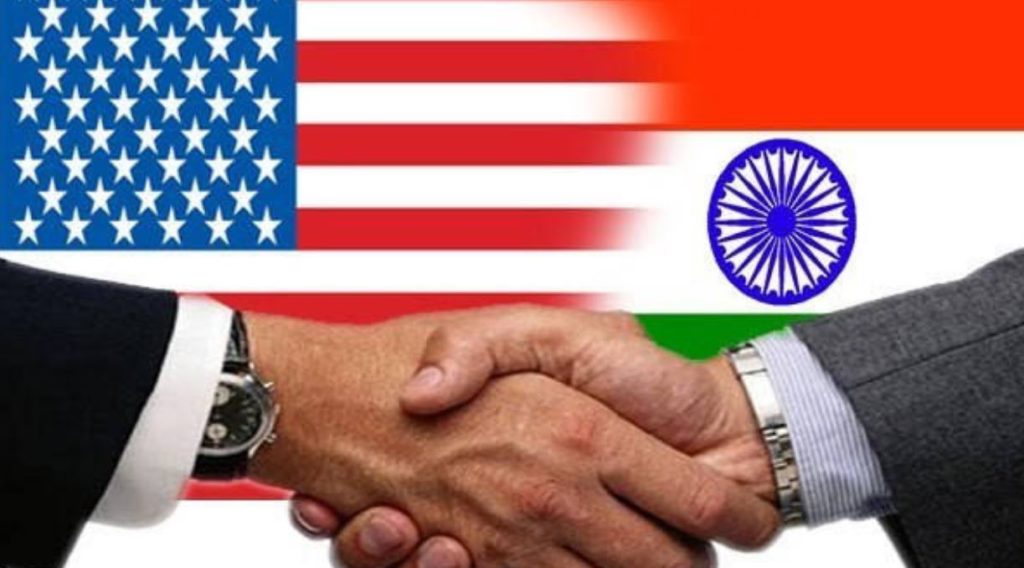 Op-Ed by Amar Maruti Patil, Adithya Anil Variath
Op-Ed by Amar Maruti Patil, Adithya Anil Variath
The decision of Donald Trump’s administration terminating India’s designation as a beneficiary of Generalized System of Preferences (GSP) programme established by the Trade Act of 1974 following India’s “failure to provide the United States with assurances that it will provide equitable and reasonable access to its markets in numerous sectors“ has created a furore among the Indo-US trade community.
No specific reasons were provided as to which Section/Provision of the Trade Act, 1974 India violates. On a general reading of Section 502 of Title V of the Act, a fair conclusion can be drawn that India has not transgressed any provision of the law. The reason cited for withdrawing Turkey’s designation from the GSP is that it has seen “an increase in Gross National Income per capita, declining poverty rates, and export diversification, by trading partner and by sector, are evidence of Turkey’s higher level of economic development” as per the Office of the USTR. Thus, the programme intended only for developing countries cannot be extended to fairly developed countries. As per the United States, Turkey would fall in the basket of developed countries. However, if we glean through the legal jargon and look minutely at the intent behind withdrawing these designations it appears to be more politically driven rather than economically driven.
Already, the current dispensation in the United States has started doing away with unnecessary baggage that it had been carrying since so many years as the Leader of the Comity of Nations. It would also help the Republican Party keep its conservative and nationalist core voter base intact at home and toughen the stance of the USA in the International Polity.
The attitude of the current Indian Government to impose heavy customs duties on various products is resulting in a boomerang effect. The constant grouse of the US President is that India is imposing high tariffs and the charitable attitude of the USA regarding liberal trade policies and incentives is far from over and if India expects trade incentives from the USA, then it better reciprocate. This need for reciprocity is the real bone of contention.
Though expectations of reciprocity and discrimination are against the fundamentals of GSP, this tit for tat policy adopted by the USA is a reflection of its protectionist regime and economic strategy. From the current scenario, two diplomatic ripostes can be predicted. The first being, India may make an attempt to solve this issue bilaterally through filing a review application to the United States Trade Representative (USTR) or an appeal to the President of the United States. The second step may be a multilateral route, taking the United States to WTO’s Dispute Settlement Body.
India has in the past approached the WTO when the European Union violated its obligations to the international body by granting tariff preferences to 12 countries including Pakistan under the European Commission Generalised System of Preference scheme’s special Drug Arrangements programme. The problem with the latter is, the U.S has been vocal about blocking the appointment of Judges to the Appellate Body. Vetoing of judicial reappointments may cripple the entire trade disputes mediation system.
The Indian Government’s Ministry of Commerce came out and said that the withdrawal of GSP benefits to India will have a minimal and moderate impact on the international trade as the total GSP benefits amount to about $190 million on overall exports under GSP of $5.6 billion between the two countries. International trade involves global logistics and involvement of various societies, so, every international action on policy may have an equal and opposite reaction on the domestic economy.
In International Relations, no policy or decision of any government can be studied or analysed in isolation. Economic policy cannot be compartmentalized. It interacts with various political forces and the fulcrum of economic relations is the strategic and political partnership. With the United States playing a key role in the Taliban peace process and India showing an active interest to replace Pakistan as an alternative mediator the need of the hour is the maintenance of the strategic Indo-US partnership. With China once again vetoing the designation of Masood Azhar as an international terrorist in the UNSC, India would look up to the USA in future to secure its interests in the conundrum of South Asian geopolitics.
The worsening relationship between India and Pakistan would naturally push India and Pakistan towards the USA and China respectively. With the USA declaring India as not just a strategic partner but a key player in the Indo-Pacific region and with India’s diplomatic vision of Act East policy India and the USA would play a huge role in keeping the Chinese Dragon at bay in the Indo-Pacific region. The economic impact of withdrawing India’s designation can be speculated upon; however, the strategic partnership and collaboration on fighting terror cannot be compromised at the cost of a trade dispute.
It would be in the best interests of both the USA and India to solve this issue bilaterally and diplomatically as it dealt with the issue of steel tariffs whereby India was exempted from revised US tariffs on steel imports.
Authors Bio: Amar Maruti Patil and Adithya Anil Variath are final year students of law at the University of Mumbai’s School of Law.

Be the first to comment on "The withdrawal of India’s GSP should not put at peril the Indo-US Collaboration and Strategic Partnership"